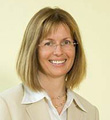10 December 2013
View Webinar Content
Presentation—Introduction to the webinar and panelists
Presentation—Moving to Performance-Based Codes: Sustainable Building Programs in Upper Austria
Presentation—Getting Building Codes
Presentation—Moving to Performance‐Based Energy Code
Presentation—U.S. Energy Codes: Design, Deploy, and Operate
Transcript—Webinar audio transcript
The Clean Energy Solutions Center, in partnership with the Global Buildings Performance Network (GBPN), hosted a series of training webinars on building energy code development. Based on the lessons learned from GBPN’s Policy Comparative Tool, this webinar—the second webinar in the series—focused on the importance of adopting a performance-based approach to energy code design to achieve ambitious energy targets. It facilitated the sharing of best practices on “how to” move towards zero energy.
Jim Edelson, Senior Manager of Codes/Policy for the New Buildings Institute in Vancouver, Washington,opened the webinar by discussing the importance of a performance-based approach to energy code design, discussing the status of such codes in the United States. And, code developers from Denmark, Austria and Massachusetts shared their first-hand experiences of implementing performance-based building codes. These panelists also explained the background environment that has facilitated the adoption of this approach, including political context, market conditions and technical capacity.
Panelists
 Niamh McDonald, Buildings Policy Analyst, Global Buildings Performance Network
Niamh McDonald, Buildings Policy Analyst, Global Buildings Performance Network
Opening Words
Niamh McDonald is responsible for policy analysis and evaluation at GBPN as well as developing and managing several technical databases, including the Policy Comparative Tool for new buildings. Prior to joining GBPN, Niamh worked for The National Trust for Ireland on the delivery of an action-based energy efficiency programme for householders. As part of this work, she researched the role of such initiatives in facilitating a transition to a more sustainable future. Niamh’s past work experience includes research into various aspects of low-carbon design while working for EcoCo an Integrated Sustainable Design Consultancy. She also gained valuable experience in the built environment sector while working with Energy Action, an Irish community based initiative that addresses fuel poverty through energy efficiency. Niamh holds a Bachelor's Degree in Civil Law (UCD) and a Master's Degree in Urban Planning (UCL).
 Jim Edelson, Senior Manager Codes and Policy, New Buildings Institute
Jim Edelson, Senior Manager Codes and Policy, New Buildings Institute
Overview of Performance Based Approach
Jim has worked at New Buildings Institute (NBI) since 2002 and is now directing the Codes and Policy program. He has served on multiple code boards and Advisory Committees in Oregon, Wisconsin, for the International Code Council, and for ASHRAE. For NBI, he has been at the forefront of national commercial energy code development. Since NBI’s successful initiative in the 2012 IECC code cycle, Jim has made important contributions to revise the IECC and IgCC based on advanced energy measures and on increasing buildings’ ongoing performance. These achievements correspond with Jim’s contributions in multiple states and utilities to advance the implementation of market leading codes such as the Massachusetts Stretch Code. He has a B.S. and an M.B.A. from the University of Michigan.
 Ian Finlayson, Deputy Director, Energy Efficiency Division | Massachusetts Department of Energy Resources
Ian Finlayson, Deputy Director, Energy Efficiency Division | Massachusetts Department of Energy Resources
Experiences from Massachusetts
Ian’s current clean energy initiatives include development and implementation of the “stretch” building energy code, and building energy labeling and efficiency pilots for both residential and commercial buildings. Ian authored the buildings chapter of the Massachusetts clean energy and climate plan for 2020. He previously worked for an affordable housing developer and internationally in Afghanistan and Japan. Ian holds degrees from Edinburgh University and MIT, and he is a past recipient of the DOE Jeffrey Johnson Award for Excellence in the Advancement of Building Energy Codes and Performance.
 Christiane Egger, Deputy Manager of O.Ö. Energiesparverband, Austria
Christiane Egger, Deputy Manager of O.Ö. Energiesparverband, Austria
Experiences from Austria
Christiane Egger is Deputy Manager of the OÖ Energiesparverband, the energy agency of Upper Austria, and the manager of the Ökoenergie-Cluster, a network of 160 companies active in renewable energy and energy efficiency. Christiane is also the Vice-President of FEDARENE, the European network of regional energy and environment agencies. She is the conference director of the World Sustainable Energy Days, one of the largest annual conferences in Europe on sustainable energy. Christiane is an expert in energy efficiency in buildings, in solar and biomass heating and in promotion of sustainable energy production and use. She holds a law degree and a post-graduate degree in environmental engineering.
